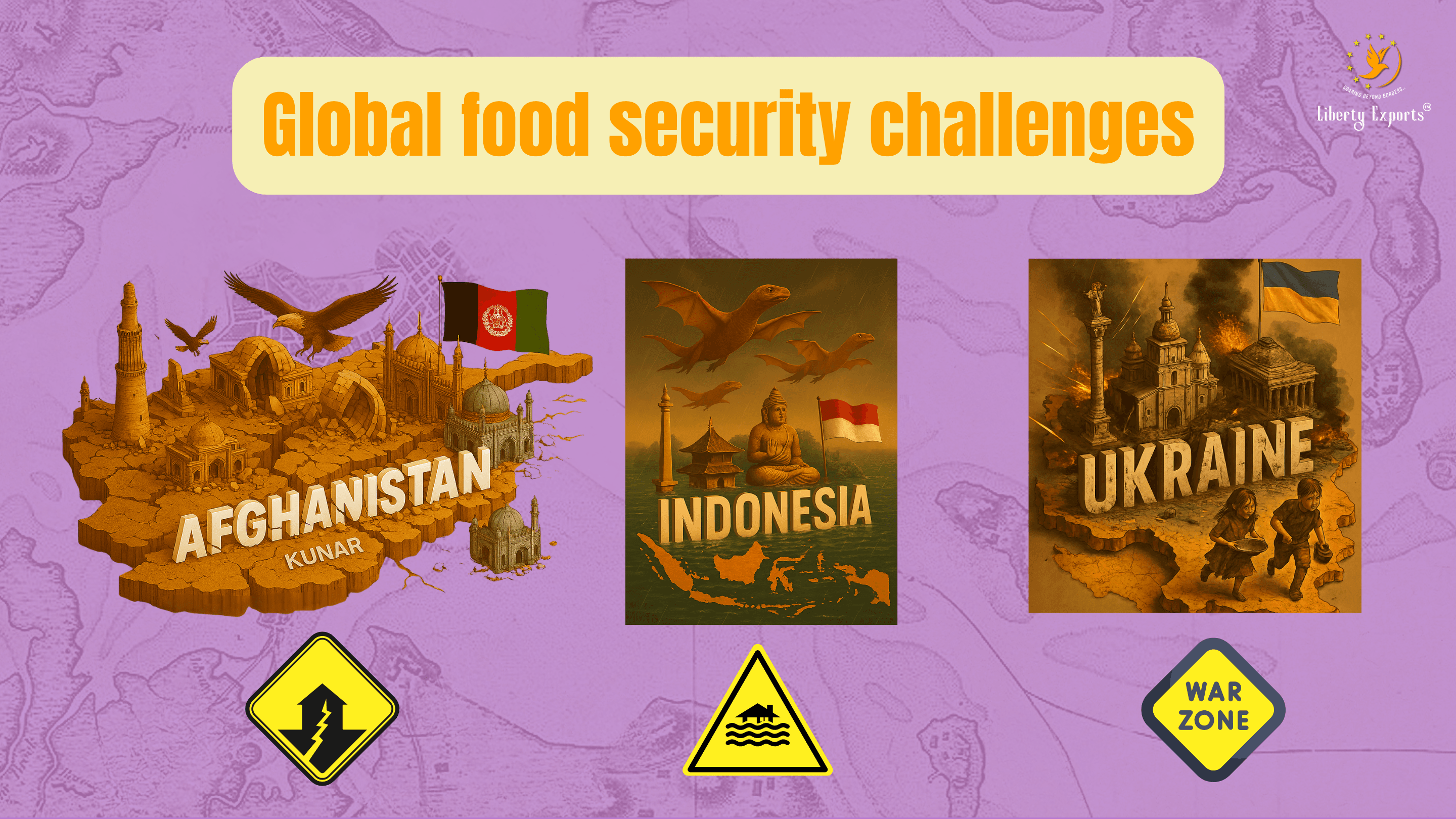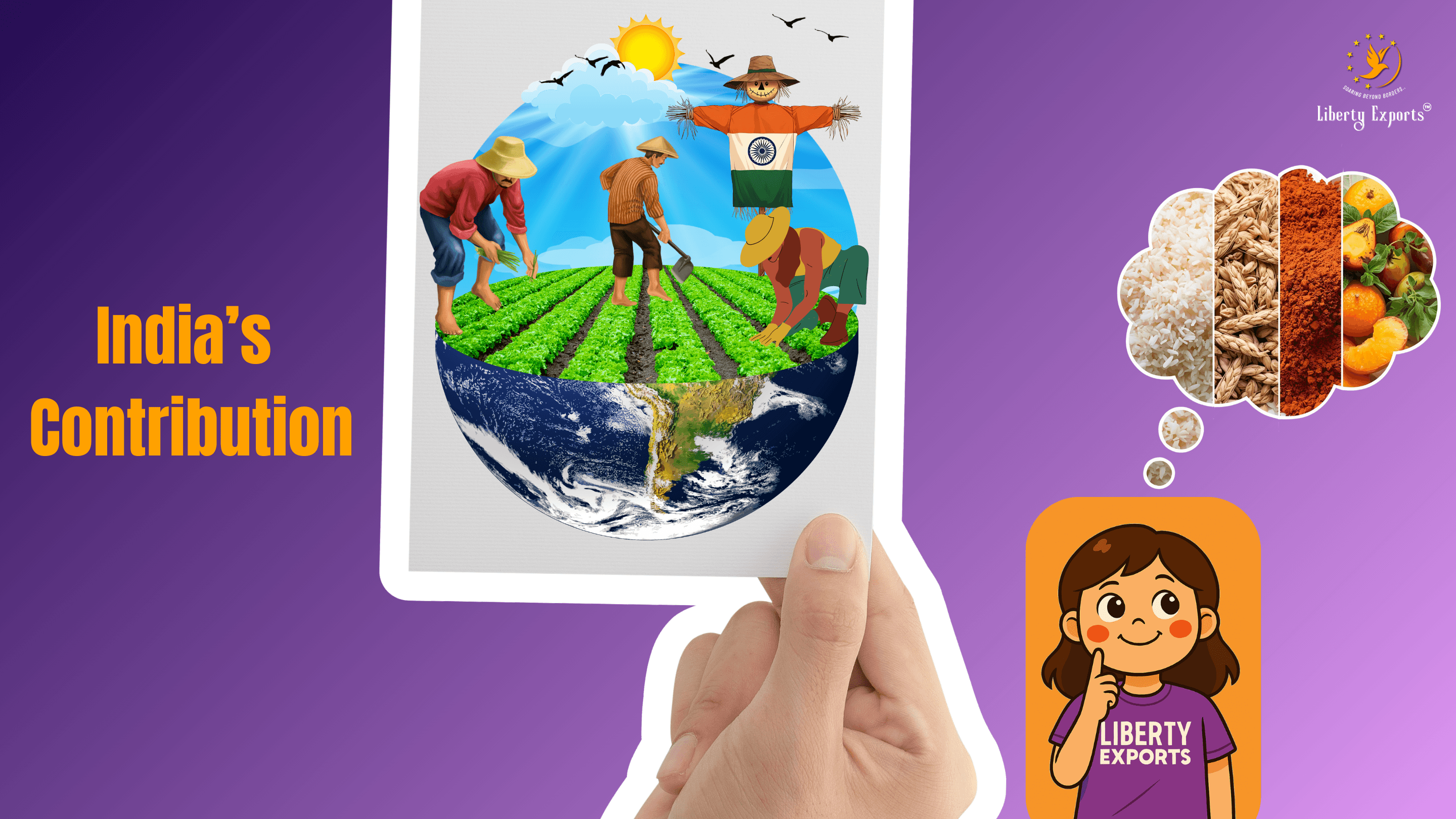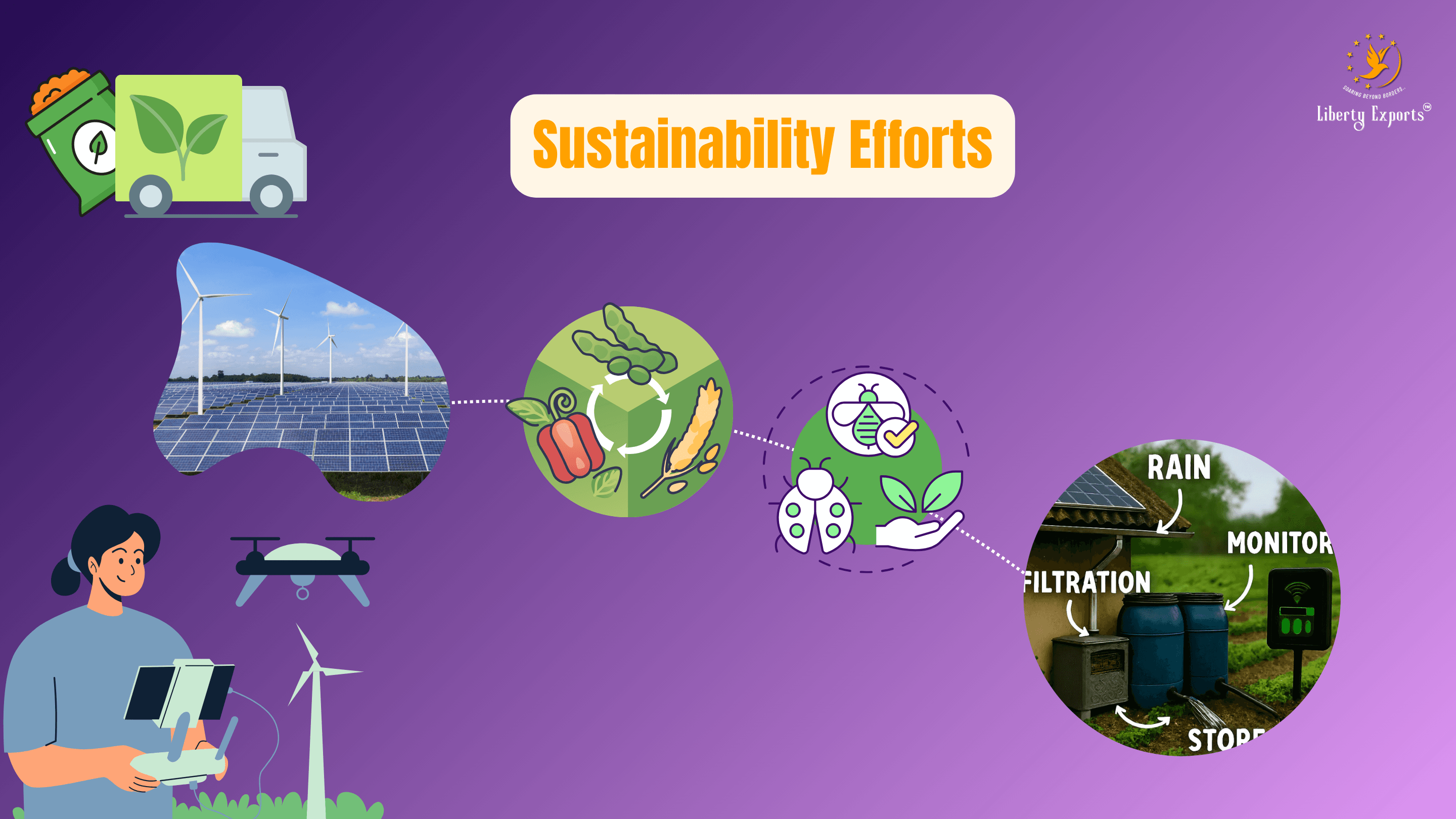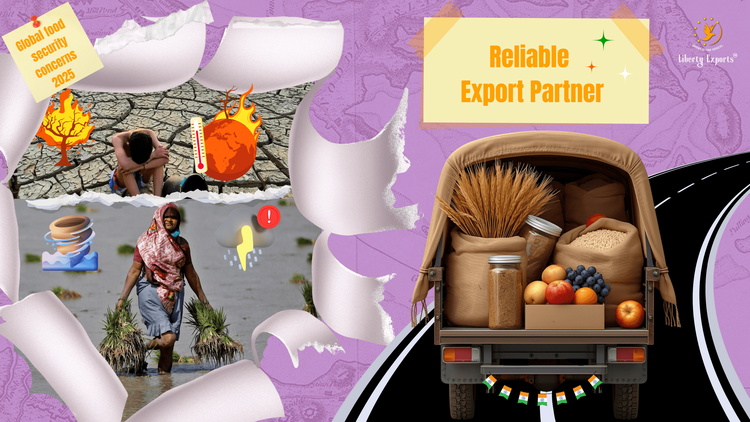Introduction to the Current Scenario (2025)
The world is facing growing global food security concerns in 2025. Climate change, extreme weather patterns, and geopolitical conflicts continue to disrupt international supply chains. Crops such as corn, wheat, rice, and potatoes are highly climate-dependent and vulnerable to droughts, floods, and natural disasters.
For example, potato production is projected to decline by 9% in 2025 due to recurring droughts and extreme weather events. Similarly, heavy rainfall and flooding threaten crops like oranges, coconuts, and bananas, leading to disrupted exports and shortages in the global market.
On average, nearly 400 natural disasters occur annually, especially in countries located near oceans and tectonic fault lines. These disruptions significantly impact agricultural exports and global food distribution.

Adding to this, geopolitical tensions and trade barriers further complicate food trade. Wars and conflicts often weaponize food, creating famine and starvation in conflict-affected regions. Food has thus become not only a survival resource but also a geopolitical tool.
Reliable Export Partners: The Growing Demand for Stability
Amidst uncertainty, importing nations are now seeking trusted and reliable export partners to secure their food supply. Stability is ensured through:
- International trade negotiations
- Foreign diplomacy and strategic investments
- Diversification of imports across multiple countries Importing nations prefer exporters with proven credibility, compliance with international standards, and recognized certifications. This ensures quality assurance, reliability, and long-term trust in agricultural trade.
India’s Role in Agricultural Exports (2025)
India’s Strong Position in Global Agricultural Trade
India ranks 8th globally in agricultural exports, with expected revenue of $36 billion in 2025. Its success is fueled by growing global demand for Indian produce, supported by:
- Nutritional Benefits: Indian spices like turmeric and ginger are globally recognized for their health benefits.
- E-Commerce Growth: Online shopping platforms have made Indian agro-products more accessible worldwide.
- Ethnic Food Demand: The ethnic food market is projected to reach USD 200.9 billion by 2032, creating huge opportunities for Indian exporters.

Government Support and Certifications
India’s agricultural export sector thrives under government-backed initiatives such as the Agriculture Export Policy, which provides financial aid, supports farmers, and promotes sustainability. Key certifications that boost India’s export credibility include:
- APEDA (Agricultural and Processed Food Products Export Development Authority): Ensures traceability and export support.
- GAP (Good Agricultural Practices): Promotes sustainability, safety, and quality.
- GMP (Good Manufacturing Practices): Maintains hygiene standards during production.
How Liberty Exports Fits In
Certified Processes and Export Destinations
Liberty Exports, a globally recognized Indian agro-exporter, supplies to major markets in the UK, EU, and the US. Holding certifications such as APEDA, FSSAI, GAP, GMP, and ISO:9001, Liberty ensures international compliance and seamless exports.
Sustainable and High-Quality Agro-Products
Liberty Exports prioritizes sustainability and quality by:
- Using Integrated Pest Management to minimize pesticide use.
- Practicing crop rotation for soil health and sustainability.
- Implementing water conservation techniques to adapt to climate challenges.

Produce is stored in temperature-controlled warehouses and packed in tamper-proof packaging, ensuring freshness and safety. Our portfolio includes cereals (rice, millets), fruits (mangoes, pomegranates), and other high-demand agro-products.
Export Success Stories
Liberty’s success lies in its customer-centric approach, quality assurance, and compliance with international standards. Their presence in Al Aweer Fruits & Vegetable Market highlights their reach and recognition in physical wholesale markets. In the UK, Liberty’s exports align with 2025 trends like digitization, sustainability, and ethnic food demand, ensuring strong market performance.
Future Outlook: India’s Sustainable Agro-Export Path
Promoting Sustainable and Ethical Trade
India is a leading advocate for sustainable trade practices, such as:
- Biodegradable packaging to reduce waste.
- Precision farming (IoT-based) to optimize yields.
- Organic farming, minimizing chemical use and enhancing food safety.
As global consumers demand eco-friendly and healthy produce, India’s sustainable agricultural practices position it as a trusted food security partner.
Emerging Food Market Trends in 2025
Liberty Exports is driving major trends, including:
- Sustainability: Crop rotation, water conservation, renewable farming.
- E-Commerce Expansion: Digital platforms for easy access to exports.
- International Compliance: Meeting global standards in labeling and documentation.
- High-Demand Crops: Supplying mangoes, millets, and other nutritious produce.
FAQs on India’s Agricultural Exports in 2025
1. Why is India important for global agricultural exports? India ranks 8th worldwide, exporting diverse, high-quality produce backed by strong government support and international certifications.
2. How do climate changes affect agricultural exports? Droughts, floods, and natural disasters disrupt crop cycles, reduce yields, and delay exports, making climate resilience crucial.
3. What certifications enhance the credibility of Indian exports? Key certifications include APEDA, GAP, GMP, and FSSAI, which ensure compliance, safety, and sustainability.
4. Which agro-products from India are in high demand internationally? Popular exports include rice, millets, mangoes, pomegranates, and spices like turmeric and ginger.
5. How is technology transforming India’s agro-exports? Technologies like precision farming, traceability systems, and e-commerce platforms are boosting efficiency and accessibility.
6. Why choose Liberty Exports as a trading partner? Liberty Exports offers certified quality, sustainable practices, and reliable supply chains, making them a trusted partner for global buyers.
Conclusion: India’s Role in Global Food Security
In 2025, India stands as a key player in strengthening global food security amidst climate change and geopolitical uncertainty. With government support, international certifications, and exporters like Liberty Exports, India provides sustainable, high-quality produce to the world. As demand for eco-friendly and nutritious foods grows, India’s agricultural exports are set to rise, offering global partners stability, reliability, and innovation.
For business inquiries, contact info@libertyexports.co.in or visit Liberty Exports
.5effdfcc.webp&w=3840&q=75)
